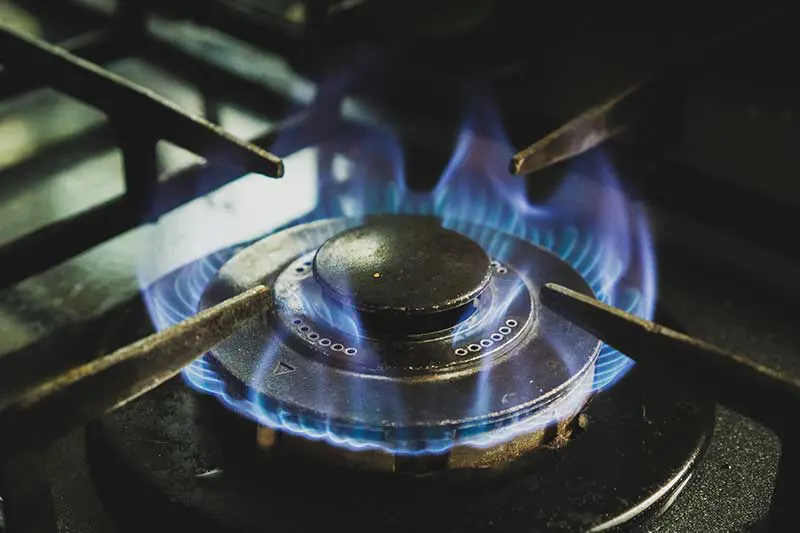Gas or Electric?
Ghost Kitchen Stoves Usually Opt For Gas
Our ghost kitchen Los Angeles has the latest in commercial cookware and we specifically chose gas grills and burners because of the control it affords. But the debate rages on as to which is preferable: gas or electric. The choice between gas and electric heat for restaurant kitchens depends on several factors, including the type of food being cooked, the size of the kitchen, and the restaurant’s budget.
Gas heat is generally preferred for commercial kitchens because it heats up quickly and provides high heat output, making it ideal for cooking large quantities of food quickly. Gas stoves and ovens also allow for more precise temperature control, which is essential for certain types of cooking.
However, electric heat has some advantages as well. It tends to be more energy-efficient and produces less heat, which can be beneficial in smaller kitchens or in hot climates. Electric equipment is also often less expensive to purchase and maintain than gas equipment.
Ultimately, the decision between gas and electric heat will depend on the specific needs and circumstances of the restaurant. It’s important to consider factors such as the menu, the size of the kitchen, and the restaurant’s budget before making a decision.
Now Your’re Cooking with Gas!
Cooking with gas refers to using a gas-powered stove or range to prepare food. Gas stoves are popular because they offer several advantages over electric stoves, such as faster heating, more precise temperature control, and lower operating costs. Here are some key things to know about cooking with gas:
- How it works: Gas stoves burn natural gas or propane to produce heat, which is then transferred to the cooking surface via burners or grates. The flame heats up the cookware, which in turn cooks the food.
- Types of gas stoves: There are two main types of gas stoves: open burners and sealed burners. Open burners have a visible flame and are often found in commercial kitchens, while sealed burners have a covered, sealed burner head and are more common in home kitchens. Sealed burners are generally easier to clean and maintain.
- Advantages of gas stoves: Gas stoves offer several advantages over electric stoves. They heat up faster, which can save time when cooking. They also provide more precise temperature control, making it easier to adjust the heat as needed. Additionally, gas stoves are typically less expensive to operate than electric stoves, especially if you have access to natural gas.
- Safety considerations: Gas stoves can be safe to use as long as they are installed and maintained properly. It is important to ensure that the gas connections and valves are secure, and that there are no leaks. You should also make sure to turn off the gas when the stove is not in use, and to keep flammable materials away from the stove.
- Cleaning and maintenance: Gas stoves require regular cleaning and maintenance to ensure they operate safely and efficiently. You should clean the burners and grates regularly to prevent buildup, and clean the oven and stovetop as needed. It is also important to have your gas stove serviced by a professional on a regular basis to ensure that it is functioning properly.

Overall, cooking with gas can be a convenient and efficient way to prepare food. However, it is important to follow proper safety and maintenance procedures to ensure that your gas stove operates safely and effectively.
Electric Ranges: Shocking
Cooking on an electric range has several benefits, including:
- Even heating: Electric ranges provide even heating across the entire surface of the cooking vessel, which makes it easier to cook food evenly.
- Quick temperature adjustments: Electric ranges can heat up and cool down quickly, which is useful when cooking dishes that require frequent temperature adjustments.
- Easy to clean: Electric ranges are generally easier to clean than gas ranges since there are no burners or grates to clean. Also, spills on electric ranges are less likely to stick and burn.
- Safety: Electric ranges do not produce harmful fumes or gases like gas ranges, which can be safer for people with respiratory issues or allergies.
- Energy efficiency: Electric ranges can be more energy-efficient than gas ranges, especially if you have a newer model that uses induction technology. Induction cooktops use magnetic fields to heat the cooking vessel directly, which reduces heat loss and can save energy.
- Compatibility with different cookware: Electric ranges can work with a wide range of cookware, including glass and ceramic, which may not be compatible with gas ranges.
Overall, electric ranges are a good choice for people who want an easy-to-use, easy-to-clean, and safe cooking experience.